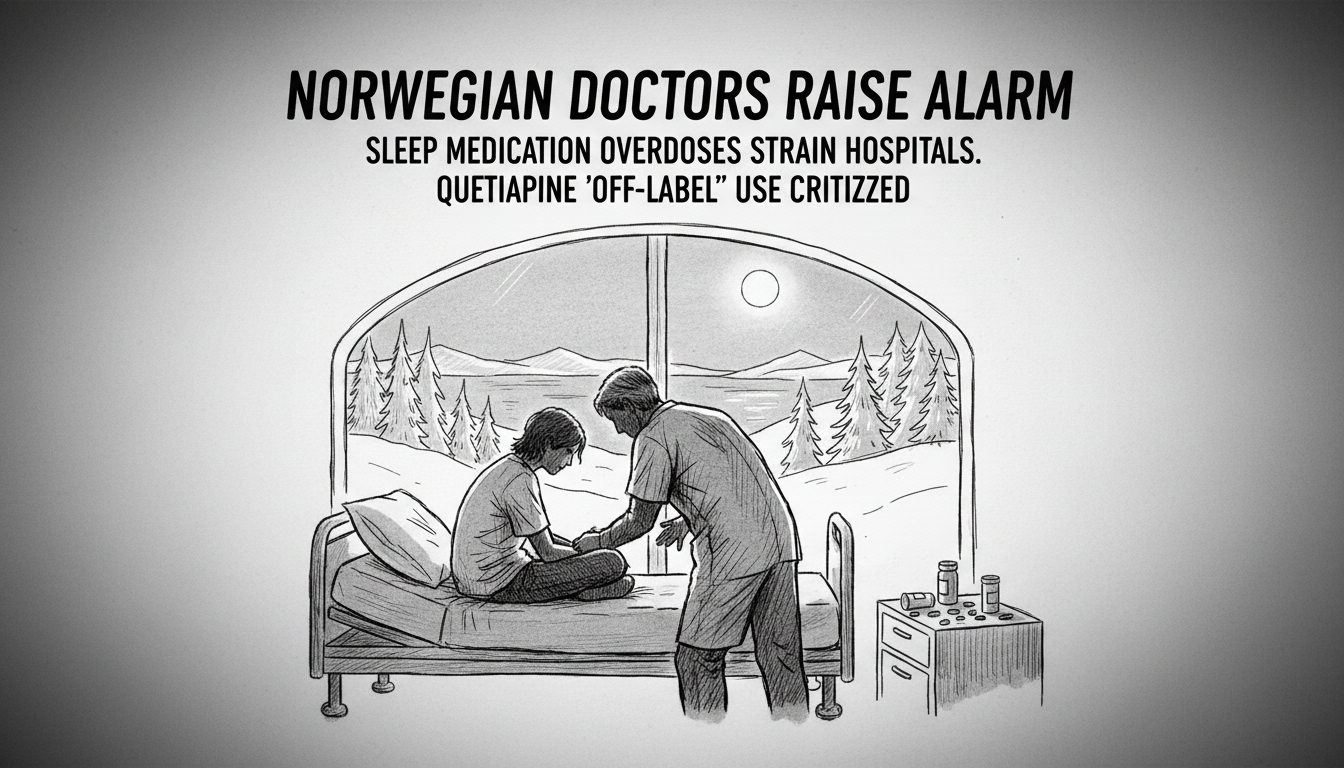Norwegian doctors report a troubling increase in young patients hospitalized after overdosing on quetiapine, a prescription medication increasingly used off-label for sleep disorders. Medical professionals at Akershus University Hospital have alerted national health authorities about this dangerous trend.
Specialist physician May-Liss Hatleskog expressed serious concerns about the medication's misuse. "We see severe side effects from this drug and that it's being abused for overdose purposes," she stated. The medication, approved for treating schizophrenia and bipolar disorder, reached nearly 95,000 Norwegian patients last year.
The Norwegian Directorate for Medical Products confirms suicide-related thoughts and behavior represent known side effects of quetiapine. Despite warnings issued in 2019 about inappropriate sleep-related prescribing, usage patterns continue to cause alarm.
Prescription data reveals telling patterns about off-label use. Among the 95,000 patients receiving quetiapine prescriptions last year, 72,000 received 25-milligram tablets. Nearly half of these prescriptions were written as general prescriptions rather than specialized psychiatric scripts. This indicates widespread use for conditions beyond the drug's intended purpose.
Torgeir Hoff Skavøy, leader of the Norwegian Association for General Medicine, emphasizes the medication lacks proper documentation for sleep treatment. "Low doses for sleep have insufficient effect documentation and non-negligible risk," he explained. "Usage for primary insomnia and sleep facilitation must decrease and preferably be discontinued."
Medical authorities acknowledge the prescription dilemma. While quetiapine isn't approved for sleep problems, doctors retain legal authority to prescribe medications off-label based on clinical judgment. Sara Viksmoen Watle from the medical products directorate noted, "When doctors use medication outside approved indications, they bear extra responsibility for that treatment."
The practical challenges compound the problem. Hospital physicians note quetiapine often comes in large package sizes, giving patients access to dangerous quantities. No specific antidote exists for quetiapine overdose, complicating emergency treatment. The medication's variable duration formulas further challenge medical management.
Sleep disorder prevalence has nearly doubled in Norway over the past decade, creating pressure for quick pharmaceutical solutions. Medical leaders advocate for non-pharmaceutical sleep treatments despite acknowledging these require more patient effort and time than medication solutions.
This situation reflects broader tensions between patient demands, clinical flexibility, and medication safety. As off-label prescribing continues despite official warnings, Norwegian hospitals face increasing emergency cases that might have been prevented through stricter prescribing practices and better patient education about sleep medication risks.

